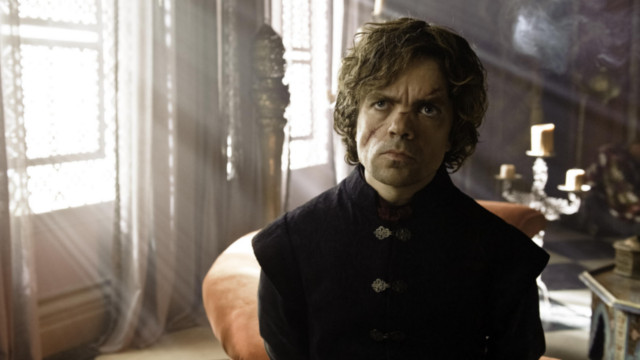Anti-piracy letters aren't worth the paper they're printed on
So why not harness pirate power?

Sign up for breaking news, reviews, opinion, top tech deals, and more.
You are now subscribed
Your newsletter sign-up was successful
It took a long time for the anti-piracy message in the UK to make sense. At first we were all bombarded with the 'you wouldn't steal a car' warnings on DVDs. These came with such an accusatory tone that it didn't matter if you had just spent £15 on a disc from your local HMV, you were a thieving pirate in the eyes of the movie industry and were spoiling it for the rest of the world.
These warnings were an irritant and nothing more. They were preaching to the converted; the very people who spent their money on discs instead of going to the bother of getting a knock-off that was filmed over someone's shoulder in the local cinema.
Since then great strides have been made, and now the anti-piracy adverts celebrate film and those who pay for it are thanked. But all this good work hasn't stopped the government and its heavy hands resorting to scare tactics once more in its bumbling bid to rid the UK of piracy.
Now we have come to a point where if you have been illegally downloading music or videos you now live in fear of being educated in letter form. This is death by a thousand paper cuts.
The deal that BT, Sky, TalkTalk and Virgin Media have struck is a great one for them. It means that in 2015 they don't have to throttle the bandwidth of piracy suspects and they don't have to cut people off – two options that were on the table. Instead they are sending out the equivalent of a 'tut tut'.
These naughty notes are nothing more than a finger wag at suspected pirates.
It's also history repeating. Just like the 'you wouldn't steal a car' ads of yore, this is preaching to the converted. But this time it is to the people who pirate and know they pirate. The ones that don't need a certificate through their letter box to rubber stamp the fact they aren't paying for their entertainment.
Sign up for breaking news, reviews, opinion, top tech deals, and more.
Writing a wrong
The Industry Trust told me recently that the biggest offenders of piracy also spend the most money on music and films. Think about that for a second.
Punishing these people by pushing a pamphlet through their door that frowns at the way they devour stuff they love is madness. What they should be given is 'buy one get one free' coupons, money off their next Blu-ray purchase and other enticements to keep them spending money.
If these are truly the people keeping the industry afloat - and stats do back this up - then the only thing they should get is a blind eye turned when they occasionally pipe illicit 1s and 0s into their hard drives.
A pirate only pirates stuff they like - they simply wouldn't do it otherwise. This means that if the ISPs are monitoring downloads and just happen to know that the latest Game of Thrones was acquired by bypassing Sky's prices, then celebrate. If it is a popular download then inevitably it's going to be a popular TV show. The latest series of Games of Thrones broke all piracy records – 1.5 million people downloaded it from P2P when it was first aired.
This is the same show that is watched by so many people in the legal way that a fifth and sixth season was commissioned off the back of the early episode success. Oh, and those pirates really didn't hurt the sales of DVDs either as Game Of Thrones is the most bought HBO show ever.
So, instead of malicious mailouts, Mr Government, why don't you let TV makers use that data to find a way to sell something to their fans? A t-shirt, a boxset, maybe even a book. Don't use it to lambast the very audience that is the most engaged around.
Pay the pirates
Or think of it another way: if rights holders really wanted to contact pirates instead of cowering behind ISPs they should hit them straight at the source. Do a Breaking Bad and prove to the world that your product is the must-have Blue Sky and a P2P download just doesn't compete.
It's already costing £750,00 to set up the systems that allows ISPs to send the letters and then £75,000 a year to maintain it. Why not use this money to advertise on the pirate sites instead?
Stop pretending they don't exist. Give them cash in exchange for adverts that offer cut-price deals, mouth-watering subscriptions and the best quality downloads money can buy.
Surely this is a better way to show a pirate that the alternative - paying a bit for stuff they love - isn't so bad? Yes, it's a bold and controversial move but one that is much smarter than 'educational' letters and the punitive promise of legal action.
No matter how many letters are written, piracy will never go away. The only way you can stem the flow is by offering a better alternative.
The Digital Economy Act was set out four years ago and this long-delayed letter initiative already feels like a lost cause. It's time to embrace not chase the pirates because all that this scheme is doing is papering over the cracks with paperwork.

Marc Chacksfield is the Editor In Chief, Shortlist.com at DC Thomson. He started out life as a movie writer for numerous (now defunct) magazines and soon found himself online - editing a gaggle of gadget sites, including TechRadar, Digital Camera World and Tom's Guide UK. At Shortlist you'll find him mostly writing about movies and tech, so no change there then.